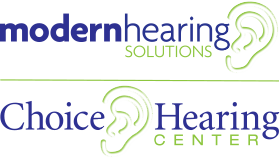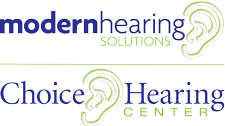Fighting Back Against Hearing Loss & Tinnitus!
When it comes to taking care of you or your loved ones’ hearing and cognitive health, you may think you are doing enough. Making sure to see our general practitioner once a year and perhaps having our first hearing test may seem like you are heading in the right direction. But a lot is happening at a level that you can’t see, and science has revealed that early hearing loss has the potential to impact our relationships at home, work and play, increase our frailty, dramatically increase our risk of dementia, and strip away our independence.
Did you know that addressing hearing loss and tinnitus at the first sign of a problem can help you avoid and reduce the amount of hearing loss treatment you may need later on? It’s true! Whether you have received a referral to get your ‘ears checked’ from your primary care physician, your ear, nose and throat doctor or your family is pushing you to get help, now may be the best time to call and make that first appointment. In addition to taking care of your ears by protecting them from loud noises (i.e., lawn mowers, power tools, etc.), seeing a hearing specialist starting at the age of 50 may provide huge benefits!
GETTING STARTED
According to ExcellenceInAudiology.org, America’s leading organization of hearing healthcare providers, it is recommended that adults aged 50 years young should have their first appointment with a hearing specialist (e.g., an audiologist or hearing instrument specialist). Unfortunately, not enough people realize that the single most modifiable lifestyle factor for preventing dementia is the early treatment of hearing loss. For those who wait, there is possibly more extensive damage to the ears and brain that will require more extensive treatment plans to address the issues. By getting started early, you may be saving yourself from years of frustration and embarrassment associated with your hearing loss. You may also be helping to reduce or prevent more unfortunate side effects of un-treated hearing loss, namely increased risk of falls, hospitalizations, dementia and premature death.
A hearing healthcare specialist can also help to ensure that any difficulty you are having, whether it be hearing loss or tinnitus, isn’t the sign of a much bigger problem. When you get started in treating your hearing loss and tinnitus, the foundation for a healthy brain and beautiful life as you age is being secured. The audiologist or hearing instrument specialist can essentially keep an eye on your ears and your brain at every stage as you age and can address concerns sooner, rather than later. The more you can do to treat your hearing, tinnitus and associated memory issues early, the better off you will be!
PROBLEM AREAS

Having your best hearing as you age keeps you in the conversation, literally. If you or a loved one are experiencing early hearing loss, you know exactly what I mean. Missing what others are saying at home and in public is very frustrating and can be embarrassing. Whether you are at a restaurant, church, or the playground with the grandchildren, not being part of the conversation (or just nodding your way through the conversation) is an unacceptable way to go through life. Being able to hear gives you a great deal of self-confidence and independence.
An important condition that early hearing loss treatment can address is difficulty hearing in background noise, i.e., difficulty following a conversation. Believe me when I say this, you may think you are able to ‘fake’ your way through a night out with family and friends, but you aren’t fooling anybody but yourself. Often times, it is our family and friends who tell us first that we better do something about our hearing! With new advances in noise-reduction technology, your hearing healthcare specialist can give you access to all the sounds you want to hear while successfully blocking out all the annoying background noise.
In addition to restoring clarity in background noise, one of the most common complaints with early hearing loss is tinnitus (i.e., sounds/ringing in the ears and/or head). There is a lot of misinformation out there about this condition. Is it curable? Can it be treated? What about those pills I see advertised in the back of the newspaper or on TV? But my doctor said there is nothing that can be done about it!
Here’s the truth (and nothing but the truth): tinnitus is treatable. It is not curable, and it can not be helped by magical pills. However, with proper treatment, the experience of tinnitus can be dramatically changed, perhaps to a point where you don’t even notice it anymore. Because everybody’s experience with tinnitus is unique, I always recommend asking your hearing healthcare specialist if treatment is right for your tinnitus.
Some of the more common early treatments that may help include:
Adaptive Hearing Aid Technology. New treatment for hearing loss uses advanced technology designed to treat hearing loss by using complex stimulation patterns to help replace diminished sound input to the brain. This allows you to hear more clearly and more naturally in all listening environments, even in noisy restaurants. This technology is also 80% effective at reducing, sometimes eliminating, tinnitus.
Extended Wear Hearing Device. A 100% invisible hearing aid that is placed deep in the ear canal and worn 24 hours per day for 4 months at a time. No surgery or anesthesia is required.
Traditional Hearing Aids. This technology has been available for 40+ years and works on the premise of making (all) sounds louder. Although this technology uses ‘tricks’ to reduce background noise (i.e., turning off certain microphones or boosting certain sounds), it does not have the ability to adapt to different listening environments or provide enhanced clarity of speech sounds.
Over-The-Counter Hearing Aids. Recent legislation has made the sale of over-the-counter hearing aids legal in the United States. These are one-size-fits-all devices that are fit ‘at home’ without a hearing evaluation. Currently, the Food and Drug Administration has limited their use to only people with mild to moderate hearing loss (although there is no way to regulate this). Fortunately, many states’ Attorney Generals, including Texas, Arizona, Michigan, Ohio, etc., have started to crack down on misleading consumers about the effectiveness of this technology.
Cochlear Implants. For those individuals that cannot hear successfully with Adaptive Technology or traditional hearing aids, implantation of a device that directly stimulates the inner ear may be an option. Typically, this option is reserved for those patients with profound hearing loss. Cochlear implantation requires surgery and anesthesia.
Tinnitus-Maskers. Many people living with tinnitus turn to indirect treatment of the ringing by introducing other noises, i.e., maskers, to help distract the brain. For example, some people will sleep with the T.V. on, a fan on, or some other noise that will cover up the annoying ringing in the head. If you or a loved one are living with tinnitus, direct treatment with Adaptive Technology can reduce the experience of tinnitus in nearly 80% of patients!
FIRST STEP
Hearing loss and tinnitus, whatever the cause may be, can be effectively treated. The fact is, as we age our chances of developing these conditions increase astronomically. Nearly 50% of people between the age of 60-70 years young experience hearing loss and/or tinnitus, and the numbers only increase from there! I have treated more patients in their 50’s in the past few years than I did in the first 15 years of my career combined!
Unfortunately, ‘age-related-hearing loss’ (in medical terms, Presbycusis) is thought to be embedded in our genetics – making it inevitable for most of us. When you mix in some noise exposure from when you were younger (concerts, work, landscaping, etc.,) you have a recipe for disaster. So, what do you do now?
Your first step is to simply arrange a consultation with your local Excellence In Audiology hearing healthcare specialist. The treatment and guidance you receive today may help save you from years of frustration, embarrassment, and possibly more devastating medical conditions, i.e., dementia, later. When it comes to your hearing and cognitive healthcare, early detection is the key to preventing future problems!





